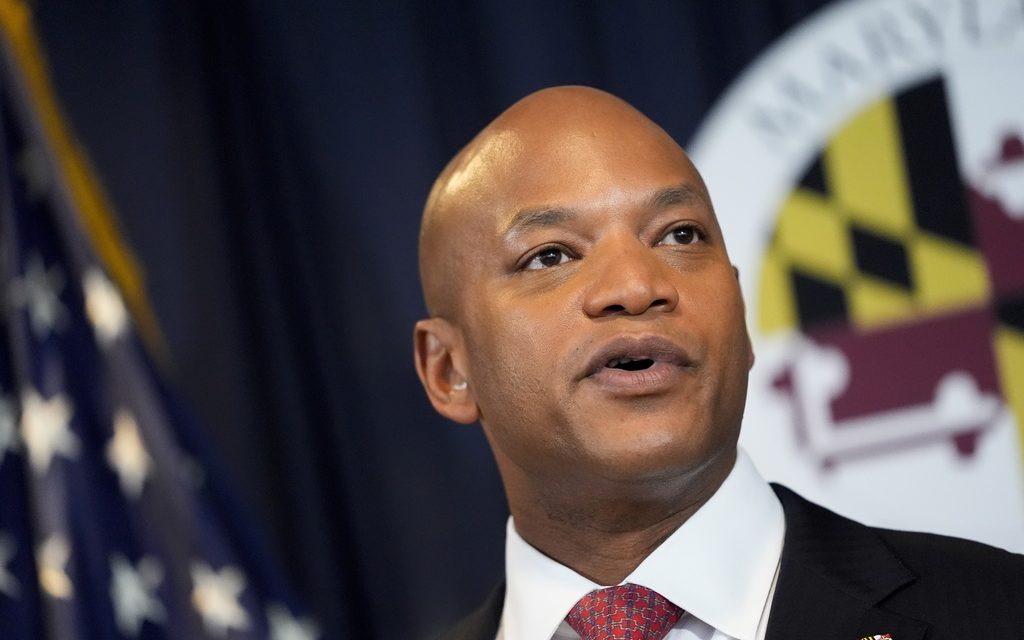
By Jack Bowman and Morgan Leason
Capital News Service
ANNAPOLIS, Md. – Democratic leaders are projecting public confidence about how Maryland will fare under Donald Trump, but they’re also concerned about some of his policies – and how quickly he might implement them.
Sen. Chris Van Hollen, D-Md., said he’s hoping for bipartisan cooperation with the incoming administration.
“We will look for areas where cooperation is possible,” Van Hollen told Capital News Service.
But he’s also preparing for a fight, sooner rather than later.
“We’ll be having to confront these challenges much earlier on,” Van Hollen told CNS, “because there’s been more preparation from the Trump side.”
Some potential areas of disagreement include Trump’s hard line on immigration, the Affordable Care Act and financial matters. In preparation for a second Trump term, Gov. Wes Moore recently hired a consultant to help state leaders understand the impact of his policies.
“I know this isn’t a result that a majority of Marylanders hoped for,” the Democratic governor told his cabinet right after the election, “but this is a result we have prepared for.”
“We are ready to push back on this new White House when necessary,” Moore said.
Maryland State Treasurer Dereck Davis is keeping it optimistic.
“Ultimately, I believe everyone understands that the government is here to serve the people, and not any political party or individuals,” Davis told CNS.
But Van Hollen advises vigilance and readiness, starting on inauguration day.
Immigration
Trump’s aggressive stance on immigration and border security, one of the central platforms of his campaign, may face opposition from Maryland leaders.
Van Hollen, while agreeing that the border should be more secure, says Maryland won’t go along with some of Trump’s more aggressive measures.
“Maryland will not facilitate mass deportation,” Van Hollen said. “That’s my view.”
The Maryland Department of Labor plans to fortify the local workforce to support those in need.
“The Maryland Department of Labor and the local workforce areas will continue to focus on supporting workers—connecting them with jobs and skills training, and, where necessary, providing unemployment insurance benefits,” said Secretary Portia Wu.
Still, leaders of local immigration rights organizations see challenging times ahead. Eric Lopez, a deputy program director at the Amica Center for Immigrant Rights, warns that deportations could move even faster under Trump.
He says he has witnessed how quickly agencies such as the federal Immigration and Customs Enforcement agency can carry out deportations when instructed.
“Time is really of the essence to effectively defend someone against prolonged detention and against swift deportation,” Lopez said.
In the DMV region, Lopez estimates at least 60,000 people have Temporary Protected Status. In a precarious position, many of Lopez’s former clients are worried their cases will be reopened and they will be deported.
“Policies will be wielded very much against these communities,” Lopez said.
Healthcare
Another area of concern is the potential rolling back of the Affordable Care Act, something that Trump has threatened since he first ran for president in 2015.
Van Hollen says that a repeal of the ACA would be “a disaster for the country.”
“It would do grave harm to tens of millions of Americans who access the Affordable Care Act and use it to ensure they have coverage even when they have pre-existing conditions,” he said.
The loss of the ACA would also hit people in their pocketbooks, according to Hannah Wesolowski, chief advocacy officer of the National Alliance on Mental Illness.
“There are tax credits that help a lot of people afford health care coverage and the insurance marketplace,” Wesolowski said. “Those are expiring at the end of next year.”
Lawmakers and citizens alike would push back against that, Van Hollen predicted.
“I think you’re going to have lots of Republicans in both the House and the Senate who would be opposed to repealing the Affordable Care Act at this point,” Van Hollen said.
One of the reasons Democrats were successful at blocking past repeal attempts, he said, is because there was “this huge outpouring of opposition from the American people.”
Funding
Maryland needs federal funding more than ever, with several statewide projects in need of financing, including the Key Bridge rebuild and the ambitious school funding plan known as the Blueprint for Maryland’s Future.
As for federal funding to Maryland, Davis said he is “not going into this expecting there to be anything politically motivated behind it.”
Van Hollen shared some of Davis’ optimism, especially with regard to the Key Bridge. Van Hollen said the rebuilding effort is already 90% funded with Maryland’s congressional delegation “pushing for the remaining 10%.”
He also expressed confidence that, in the cases that Trump does make funding decisions that hurt Maryland, Van Hollen and the Maryland delegation will be able to successfully push back. He cited an example from Trump’s first term in which he said the president attempted to slash funding for the Chesapeake Bay Program.
“We, the Maryland delegation, successfully worked with our colleagues on a bipartisan basis,” Van Hollen said. “And the annual funding for the Bay program not only was not eliminated, but we increased the funding for that program.”
The post Maryland Democrats prepare for 47th presidency appeared first on AFRO American Newspapers.











